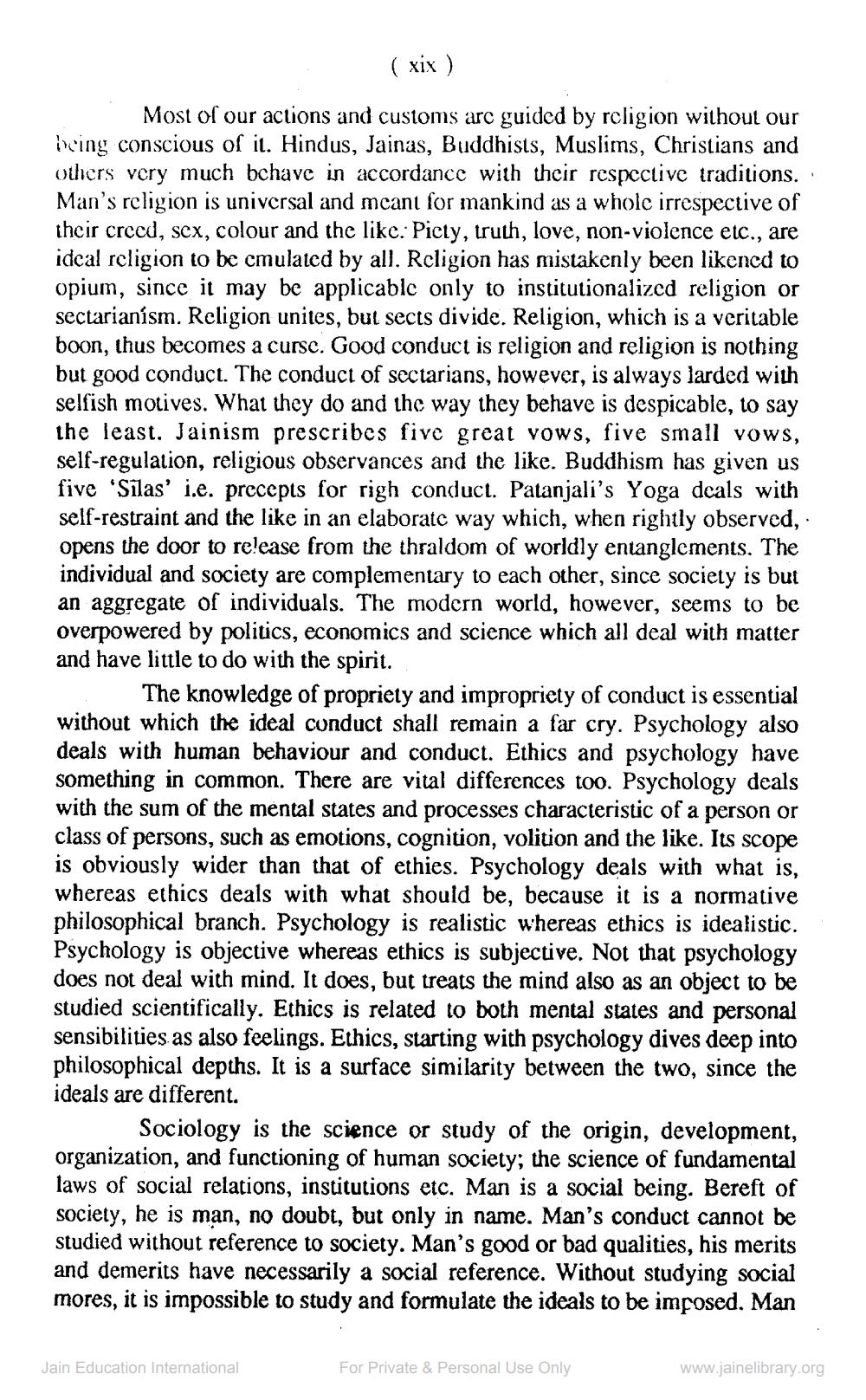________________
( xix)
Most of our actions and customs are guided by religion without our being conscious of it. Hindus, Jainas, Buddhists, Muslims, Christians and others very much behave in accordance with their respective traditions. Man's religion is universal and meant for mankind as a whole irrespective of their creed, sex, colour and the like. Picty, truth, love, non-violence etc., are ideal religion to be emulated by all. Religion has mistakenly been likened to opium, since it may be applicable only to institutionalized religion or sectarianism. Religion unites, but sects divide. Religion, which is a veritable boon, thus becomes a curse. Good conduct is religion and religion is nothing but good conduct. The conduct of sectarians, however, is always larded with selfish motives. What they do and the way they behave is despicable, to say the least. Jainism prescribes five great vows, five small vows, self-regulation, religious observances and the like. Buddhism has given us five 'Silas' i.e. precepts for righ conduct. Patanjali's Yoga deals with self-restraint and the like in an elaborate way which, when rightly observed, opens the door to release from the thraldom of worldly entanglements. The individual and society are complementary to each other, since society is but an aggregate of individuals. The modern world, however, seems to be overpowered by politics, economics and science which all deal with matter and have little to do with the spirit.
The knowledge of propriety and impropriety of conduct is essential without which the ideal conduct shall remain a far cry. Psychology also deals with human behaviour and conduct. Ethics and psychology have something in common. There are vital differences too. Psychology deals with the sum of the mental states and processes characteristic of a person or class of persons, such as emotions, cognition, volition and the like. Its scope is obviously wider than that of ethies. Psychology deals with what is, whereas ethics deals with what should be, because it is a normative philosophical branch. Psychology is realistic whereas ethics is idealistic. Psychology is objective whereas ethics is subjective. Not that psychology does not deal with mind. It does, but treats the mind also as an object to be studied scientifically. Ethics is related to both mental states and personal sensibilities as also feelings. Ethics, starting with psychology dives deep into philosophical depths. It is a surface similarity between the two, since the ideals are different.
Sociology is the science or study of the origin, development, organization, and functioning of human society; the science of fundamental laws of social relations, institutions etc. Man is a social being. Bereft of society, he is man, no doubt, but only in name. Man's conduct cannot be studied without reference to society. Man's good or bad qualities, his merits and demerits have necessarily a social reference. Without studying social mores, it is impossible to study and formulate the ideals to be imposed. Man
Jain Education International
For Private & Personal Use Only
www.jainelibrary.org




